Car T-Cell Therapy Cost in India
Unlock Exclusive Discount : Your Gateway to Premium Healthcare with Medsurge India Health Value Card.

Unlock Exclusive Discount : Your Gateway to Premium Healthcare with Medsurge India Health Value Card.

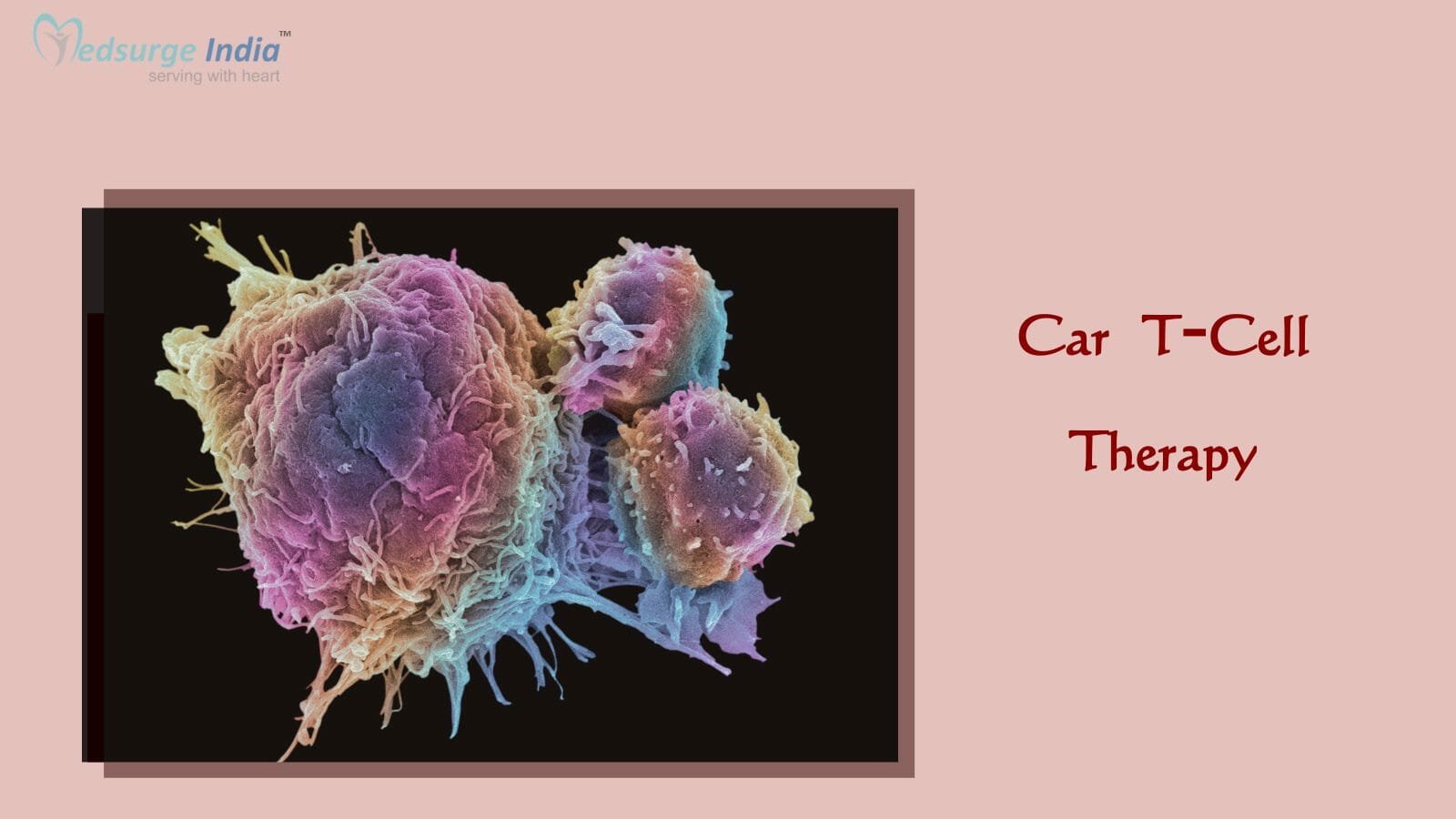
The immune system is crucial for recognizing and regulating substances within the body. When it detects foreign substances, it activates a response aimed at their removal. Chimeric antigen receptor (CAR) T-cell therapy harnesses this immune response by genetically modifying T cells, a specific category of white blood cells, in a controlled laboratory environment.
These specially engineered T cells are tailored to seek out and eliminate cancer cells effectively. CAR T-cell therapy is frequently categorized as a form of cell-based gene therapy, as it involves modifying the genetic makeup of T cells to improve their capacity to fight cancer. Recognizing the financial aspects of CAR T-cell therapy in India highlights the necessity for affordable and efficient cancer treatments across various healthcare environments.
Car T Cell Therapy Cost in India ranges from $75,000 to $85,000. The cost will depend on various factors including overall health, organ function, and individual treatment responses.
| Countries | Approximate Cost (USD) |
|---|---|
| India | $75,000 to $85,000 |
| United State | $373,000 to $475,000 |
| United Kingdom | $320,000 to $360,000 |
| Australia | $320,000 to $385,000 |
| UAE | $325,000 to $490,000 |
| Thailand | $150,000 to $200,000 |
Note: Keep in mind that the cost stated above are only for the cost of the treatment there will be other additional costs for the final cost of the treatment.
CAR T-cell therapy cost in India can based on various factors, including:
CAR T-cell therapy is a form of immunotherapy that uses genetically modified immune cells to fight cancer. T cells are white blood cells that have been genetically engineered to locate and target cancer cells in the body.
According to the immune system, this powerful army of T-cells serves as the front line of our body’s defenses. Their aim is to find and eliminate anything that can cause disease or infection. When it comes to cancer, the immune system frequently fails to deploy T-cells quickly or at all. When this happens, the attack is considered unusable. CAR T-cell therapy in India transforms these T-cells into chimeric antigen receptors (or CARs), which bind to cancers and kill them.
About T-cells: By understanding what T-cells perform can help you better understand CAR T-cell therapy.
The FDA has approved CAR T cell therapy for patients who have relapsed/recurred or progressed after receiving previous treatments for certain types of leukemia or lymphoma. The patient must have previously failed at least two standard cancer therapy to be eligible for the CAR T-cell therapy in India.
Children and adults up to the age of 25 with advanced and relapsed or refractory acute lymphoblastic leukemia, as well as adults with aggressive and recurring large B-cell non-Hodgkin lymphomas that have not been totally eradicated after at least two prior cancer therapy.
The FDA has approved CAR T-cell therapies for the treatment of B-cell non-Hodgkin lymphomas (white blood cell cancer) in adults and Acute Lymphoblastic Leukemia (ALL) in children and young adults. The two FDA-approved therapies are:
Other types of blood cancers are being treated using Car T-Cell Therapy in a number of clinical trials, including:
Treatment for Car T-Cell Therapy in India, the doctor will do a series of tests to see if the patient is a good candidate for it. The steps in the treatment process are as follows:
A procedure called apheresis is used to collect T cells from the patient. It entails extracting blood from the patient and eliminating specific blood components, in this case, T-cells. The blood that remains is returned to the body.
T-cells are genetically altered to express chimeric antigen receptors (CARs) on their surface after being taken from the blood and transported to the lab for bioengineering.
In the laboratory, the number of modified CAR T cells is increased until there are millions of them. After that, the cells are frozen and transported to the hospital. This procedure could take 2 to 6 weeks to complete if there are enough participants.
Around 1 or 2 weeks before the new cells are given, the patient comes to the hospital for a brief course of chemotherapy with lympho-depleting medications. This process is carried out to clear the immune system of normal T cells and make room for CAR T-cells to grow.
The CAR T-cells are frozen in the hospital and then infused into the patient’s bloodstream via a process similar to blood transfusion. These cells are then permitted to develop and proliferate in the patient’s body.
Know More:- NexCAR19 India’s First Living Drug For Cancer Treatment
CAR T-cell treatment can be very effective against certain types of tough cancers, but it can also have severe or even fatal side effects. As a result, it must be administered at a medical facility that is properly skilled in its usage, and patients must be constantly monitored for several weeks after receiving CAR T-cells therapy
CAR T-cells can release large amounts of molecules called cytokines into the bloodstream as they multiply, which can stimulate the immune system. The following are major side effects that may occur as a result of this release:
Doctors are learning how to diagnose CRS early and how to treat it as they get more expertise with CAR T-cell therapy.
Also Read:- Best Oncologists in India
This treatment can have substantial side effects on the nervous system, resulting in symptoms like:
Adult patients are often advised not to drive, operate heavy machinery, or engage in any other potentially risky activities for at least several weeks after receiving therapy due to the risk of these side effects.
The early outcomes of CAR T-cell therapy for patients with blood cancers have been outstanding in clinical trials using chimeric antigen receptor T-cells.
Up to 90% of children and adults with specific cancers who had relapsed or failed to respond to traditional medicines achieved remission after undergoing CAR T-cell therapy, according to certain studies. Relapses may occur as a result of tumor cells losing their expression of the cluster of differentiation (CD-19) antigen, CAR T cell persistence being reduced, or CAR T-cell activity is inhibited.
CAR T-cell therapy has also shown potential in other blood cancers, such as chronic lymphocytic leukemia (CLL) and multiple myeloma. CAR T-cell therapy is also being researched for use in the treatment of cancer.
The country has some of the best medical care facilities and services in Asia, making medical tourism in India very popular. The best Hospitals for Car T-Cell Therapy in India provide all types of disease-related surgeries using advanced technology. Also, the Car T-Cell Therapy cost in India is much more affordable as compared to other states or nations around the world. An international patient can expect to pay 50-60% less for Car T-Cell Therapy in India.
The best Car T-Cell Therapy in India provides comprehensive appropriate treatment, including comprehensive pre-operative evaluations, minimally invasive surgical options, and post-operative rehabilitation programs. Patients can expect personalized treatment, individualized attention, and compassionate care at these medical facilities. The hospitals are accredited by top international organizations such as the National Accreditation Board for Hospitals and Healthcare Providers (NABH) or the Joint Commission International (JCI).
Indian hospitals that perform CAR T-Cell therapy are well-known for their hospitality and patient care services providing the finest hospital and surgeons in India. However, choosing a suitable hospital for treating Car T-Cell Therapy in India can be difficult for an international patient. It is a significant decision that must be made with several factors in mind, including:
Medsurge India is a prestigious support system for patients looking for doctors, hospitals, and specialized treatments. Our staff will provide you with a list of licensed, renowned, and trustworthy physicians and medical facilities in relation to your medical needs. Additionally, we offer a treatment strategy that fits your budget. Apart, we assist patients with obtaining travel authorizations, medical visas, and a multitude of other things.
| Estimate Type | Estimated Cost (USD) |
|---|---|
| Total Package Estimate | USD 75,000 – USD 85,000* |
*Final cost depends on hospital, patient condition, and additional procedures/devices if required. Share your reports to get an accurate quote.
Estimated cost range in India: USD 75,000 – USD 85,000*
*For an accurate quote and hospital options, share your reports and preferred city/hospital.
A: According to the Cancer research department, the CAR T-cell therapy success rate is around 30% to 40% for long-term remission with no additional treatment.
A: CAR T-cell treatment may eventually be able to completely replace chemotherapy and stem cell transplants. However, we must first demonstrate that it is at least as successful as — if not more effective than — those medicines.
A: Most people need to stay in the hospital for a week to ten days so that their doctors can evaluate their progress and manage any side effects. You might be able to get CAR T-cells without staying in the hospital.
A: While the medication can help some patients with advanced cancer achieve long-term remissions, it can also bring neurologic adverse effects such as speech issues, tremors, psychosis, and seizures. Some of the negative effects might be dangerous or even fatal.
A: The risk/recovery period for patients who get CAR T-cell treatment is approximately 2-3 months. Patients will be monitored for adverse effects and treatment responses during this time. Patients are frequently admitted to the hospital during this time to deal with issues.

Surgical Oncologist
Senior Consultant
12+ Years
BLK Max Super Speciality Hospital, New Delhi
View Doctor
Medical Oncologist
Associate Consultant
10+ years
Meitra Hospital, Calicut, Kerala
View Doctor
Radiation Oncologist
Senior Consultant
10+ years
Apollo Proton Cancer Centre, Chennai
View Doctor
Surgical Oncologist
Senior Consultant
8+ years
Meitra Hospital, Calicut, Kerala
View Doctor

Medical Oncologist
Consultant
15+ years
Care Hospitals HITEC City
View Doctor
Surgical Oncologist
Sr. Consultant & Associate Clinical Director
20+ years
Care Hospitals HITEC City
View Doctor
Surgical Oncologist
Senior Consultant
13+ years
Care Hospitals HITEC City
View Doctor
Surgical Oncologist
Senior Consultant & Head of the Department
22+ years
Care Hospitals HITEC City
View Doctor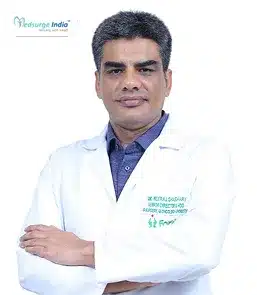
Surgical Oncologist
Senior Director
15+ years
Fortis Hospital, Vasant Kunj, Delhi
View Doctor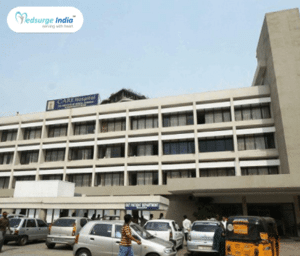
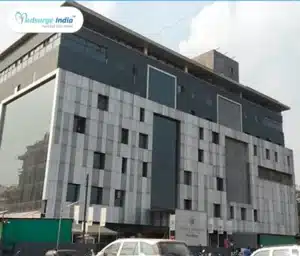
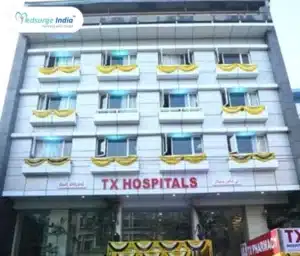
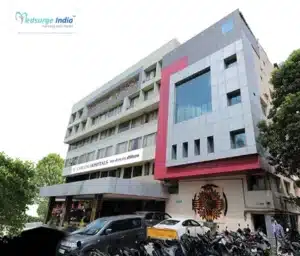



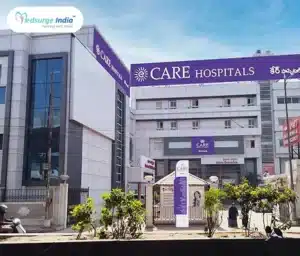
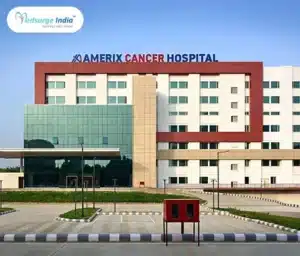
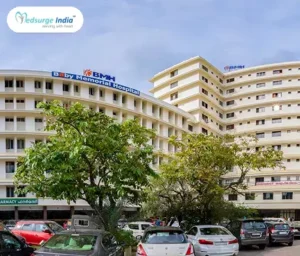
By using our site, you agree to our Terms and Conditions, Privacy Policy and Refund Policy. Medsurge India provides reliable healthcare information and treatment options to support informed decision-making. Our content is designed to support and complement the guidance of your treating doctor, helping you feel informed and confident throughout your healthcare journey. We also Accept International Payments.

Copyright © 2025 NSM ONLINE SOLUTIONS PRIVATE LIMITED. All rights reserved.